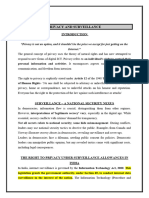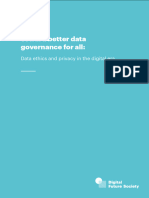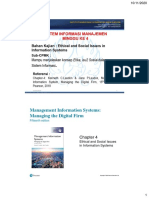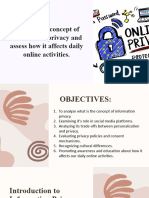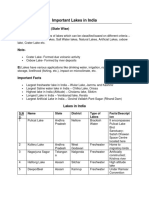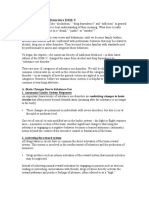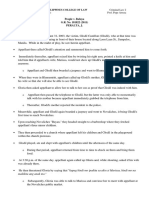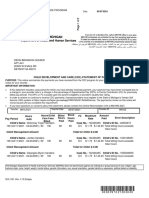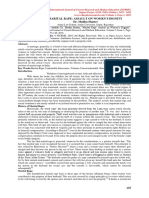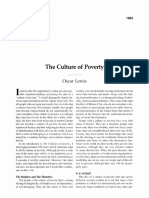Day 3 – UPSC + CDS Advanced Practice
Set
Reading Passage: Technology and Privacy in the Digital Age
In the 21st century, the value of personal data has surpassed even that of oil, leading
many to call it the most valuable resource of the digital economy. Every online action—
searches, clicks, purchases, and preferences—is meticulously tracked, recorded, and
monetized. From tech giants to app developers, a vast ecosystem thrives on the
commodification of individual behavior. Ironically, most users surrender their privacy
willingly in exchange for free services, unaware that their personal information is the true
currency of the internet.
The implications are far-reaching. Governments and corporations now possess tools that
allow them to know individuals better than the individuals know themselves. Social
media algorithms can predict mental health issues, consumer desires, or political
inclinations—all from passive digital behavior. What began as a convenience-driven
digital environment has now evolved into a surveillance ecosystem, subtly influencing
not just consumption patterns but also opinions, relationships, and identities.
Surveillance today operates on two fronts: state and corporate. Governments justify data
collection on grounds of national security, governance, and public service delivery.
Aadhaar in India, facial recognition in China, or biometric border controls in the U.S. all
reflect a growing tendency of states to monitor citizens. While such measures often
improve efficiency, they also carry risks of misuse, overreach, and erosion of civil
liberties.
On the corporate side, the surveillance is even more insidious. Algorithms driven by
artificial intelligence are constantly learning from users, predicting actions, and
manipulating outcomes. For example, an e-commerce website may push specific products
based on browsing habits, while social platforms can control news feeds to shape
worldviews. These mechanisms not only reduce consumer autonomy but also amplify
echo chambers and misinformation.
Privacy policies are rarely read, and consent is often a façade. Most users accept terms
and conditions without comprehension, driven by urgency or indifference. The result is
an implicit consent system where the individual is technically compliant but practically
unaware. The language of such policies is legalistic, complex, and intentionally
�obfuscating, discouraging genuine understanding.
Critics argue that we are entering a post-privacy era, where privacy becomes a luxury
rather than a right. Digital natives—especially younger generations—may never
experience true anonymity. Their lives are documented in real time through GPS,
biometric logins, cloud storage, and constant online sharing. Even mundane activities like
walking, commuting, or shopping can become data points in predictive models.
But the danger is not just surveillance—it is normalization. The more society internalizes
surveillance as necessary or harmless, the less resistance there is. Surveillance shifts from
exception to default, from tool to culture. Once data-driven profiling becomes routine,
discrimination based on algorithms may become invisible yet deeply entrenched. A job
denial, a loan rejection, or an insurance premium increase may all result from unseen
biases in data analytics.
International legal frameworks struggle to keep up. The General Data Protection
Regulation (GDPR) in the EU is a commendable attempt at protecting rights, but its reach
is limited outside Europe. In contrast, countries like India still lack comprehensive data
protection laws. The proposed Digital Personal Data Protection Bill seeks to address
these gaps, but implementation remains a concern.
Solutions must be multi-pronged. Individuals must be educated in digital literacy and
understand their rights. Companies must be regulated with strong oversight, transparency,
and accountability. Governments must strike a balance between security and liberty.
Importantly, ethical frameworks must evolve alongside technology, ensuring that rights
are not sacrificed at the altar of innovation.
In conclusion, the digital age is here to stay—but its trajectory must be shaped by
conscious citizens, responsible corporations, and ethical states. Privacy is not an obsolete
ideal; it is a foundational pillar of dignity, autonomy, and democracy. Defending it is not
a regression into paranoia but a progressive assertion of our most basic human values.

















